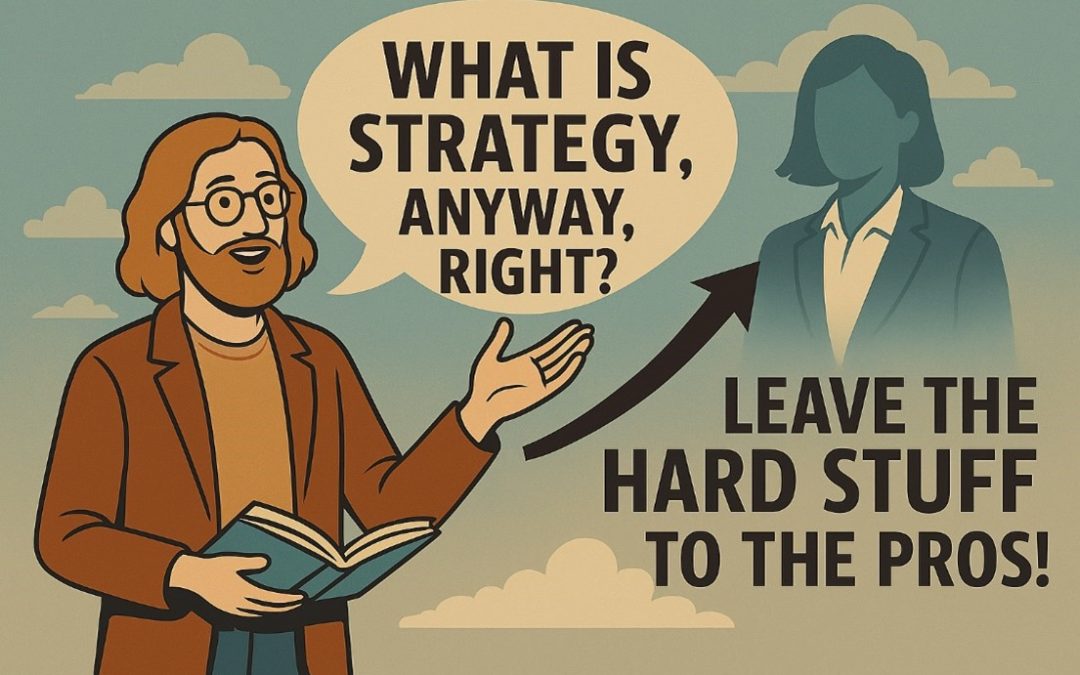Welcome to the Management Studies Insights Blog
The managementstudiesinsights.com blog provides engaging snapshots about research published in the Journal of Management Studies in a manner that highlights its practical and societal implications. The blog aims to bridge academic scholarship in management studies with scholars across disciplines, practitioners, media and the broader public who are interested in the societal relevance of management studies, and invites for discussion about the impact that management scholarship has beyond academia. The Management Studies Insights Blog is the official blog of the Journal of Management Studies.

The part-time strategists’ guide to carving out a strategy role
Summary Our paper published in Journal of Management Studies argues that voluntary participants in Open Strategy initiatives need to deal with an important challenge. On the one hand, they are confronted with ambiguous and elusive role requirements (‘What is...

Trust Can Backfire: Who Shines and Who Struggles When Feeling Trusted by a Manager
Not everyone reacts the same way to feeling trusted by a manager. For some, it is a compliment, while for others, it is a burden leading to less engagement, lower performance, and more conflict at home. New research in the Journal of Management Studies explains what...

What Type of Leadership is Required for Business Schools to Better Serve Their Purpose?
For many years, business school leaders have focussed on producing outputs like revenues for their (often demanding) parent universities, and good salaries for their graduates. But, what if business schools could return to their founding purpose of enhancing the...

Institutional Logics and the Post‐Financing Relationship Between Investors and Entrepreneurs
Summary The investor-entrepreneur relationship is crucial for both parties, yet, much research has largely overlooked its two-sided nature, which requires mutual commitment from both investors and entrepreneurs. Our study, published in the Journal of Management...

Mastering the Art of Designing Creative Business Models
Photo credit: https://pxhere.com/de/photo/722992 Summary Our article, published in the Journal of Management Studies, explores the cognitive mechanisms that drive creative business model design. By analysing real-time thought processes of experienced designers,...

How do differences in people’s actions and interactions within firms explain variance in firm-level CSR outcomes?
Picture by Jon Tyson on Unsplash The business conduct of firms relies on many individual choices and actions by people who strategize and implement corporate social responsibility (CSR) or make moral judgments in daily routines within these firms. Our study,...

War and Management: Bridging Organizational Insights and Societal Challenges
Summary War is not just a battlefield event; it profoundly impacts organizations, societies, and individuals, demanding new ways of organizing and managing. In our recent article published in the Journal of Management Studies, we explore war as a phenomenon in...

Can HR Drive Ethics? The Role of Social Responsibility in Workplace Integrity
Summary Discover how socially responsible HRM transforms workplace ethics. Our study reveals that integrating ethical principles into HR policies fosters moral awareness, builds trust, and cultivates ethical leadership. This comprehensive approach not only...

Unlock AI’s Full Potential: Why Most Companies Fail and How You Can Succeed
What did you study, and why is that important? Do you want your company to adopt and fully leverage AI tools and stay ahead of competitors? The answer is almost always yes. But the real question is: how can you, as a leader, ensure that your managers and...

Messing Up Visual Management Studies: A Problematizing Review
SUMMARY Visuals have the potential to further open our understanding of organizational life to its complex messiness. However, this potential is not always fully realized in visual management studies. Through a problematizing review of the existing research...
